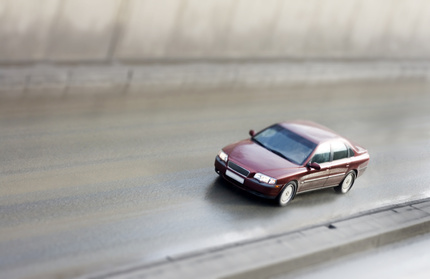
Many car enthusiasts want to reduce the weight of their cars. Reducing weight can increase performance as well as gas mileage. For every 100 lbs., gas mileage is reduced by two percent. A weight reduction for your car can increase acceleration, help with better braking and boost general handling of the vehicle. Reduce your car's weight at home, or take your car to the shop for these mods.
Install carbon fiber parts. Carbon fiber parts will be lighter than the stock parts originally on the car. Replace the hood and trunk with a carbon fiber hood and trunk. The weight reduction will vary model to model, but carbon fiber parts can help reduce around 30 lbs. You can also lose an additional 15 to 20 lbs. by replacing the header and exhaust with lightweight parts.
Replace the stock battery. Using a lightweight battery can reduce about 10 lbs. from the weight of your car.
Remove the air conditioner. The AC unit can be taken out to reduce weight, but think carefully about the summer months before you take this step.
Replace the stock wheels. Lightweight wheels can reduce another 8 to 10 lbs.
Remove small items. The cigarette lighter, ash tray and lid, cup holders, headrests for seats, glove compartment door -- individually these items might not seem like much, but together you can shed a few pounds.
Remove any seats you won't be using. If you'll be the only one using the car, you can remove the passenger seat and backseats to reduce an additional 35 lbs. from your car's weight. While doing this, also remove the floor mats and carpeting to free up an additional 10 lbs. You can also replace the driver's seat with a lightweight model.
Remove the stereo and speakers if you don't plan on listening to music in the car.
Remove all unnecessary items from the trunk. Don't keep your golf clubs or heavy bookbag in it.